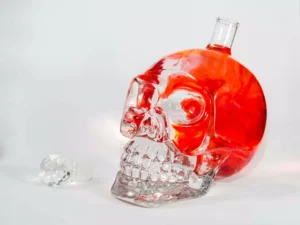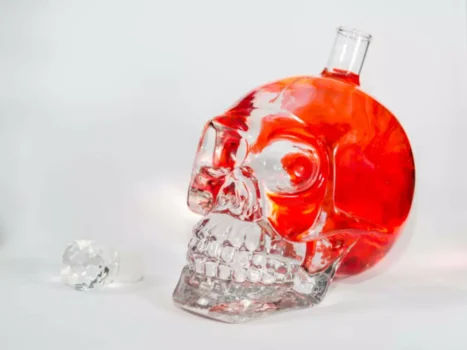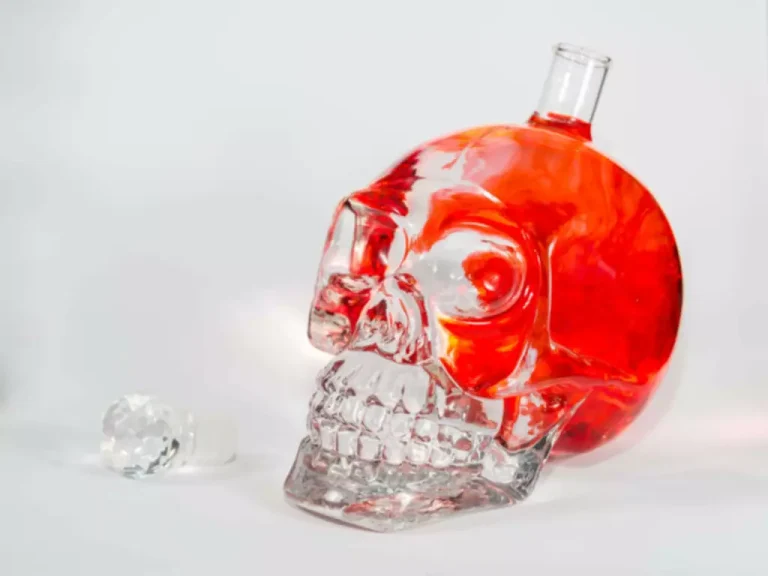
Only one type of glutaminergic neuron is found in the cerebellum, which is the granule cell 44. The frontal lobe of the cerebral cortex has several important functions contributing to human qualities. Besides that, the frontal lobe is deemed the moral centre of the brain, as it plays an important role in advanced decision-making processes 44.
Dr Jack Braha Method: Transform Your Health

Being lipophilic 24, ethanol is able to pass through the phospholipid bilayer of cell membranes and affect several intracellular signalling proteins, particularly protein kinase C (PKC). Examination of brain tissues excised from mice, which lack PKCε and GABA receptors, has shown increased sensitivity to ethanol. For instance, 20 mmol/L of ethanol doubles GABAergic neurotransmission when compared to naïve controls 25. On the other hand, alcoholism the loss of ethanol-induced potentiation of GABAergic neurotransmission was observed in mutant mice where PKC-γ is absent 26. Not only did these mice show increased ethanol consumption, but they also appeared to be more aggressive.
- Recent studies conducted by researchers have conceptualized a marked relationship between inflammation and oxidative stress, in addition to neurodegeneration 101.
- Each person’s experience with alcohol detox can vary significantly, making it essential to seek professional help.
- You might not have any issues after your short-term withdrawal goes away.
- Symptoms of alcohol withdrawal can range from mild to serious and can sometimes be life-threatening.
- You’re also at risk for AWS if you’ve previously had withdrawal symptoms or needed medical detox for a drinking problem.
- Initial symptoms include tremor, anxiety, insomnia, restlessness, and nausea.
Top 8 Books by Experts in Addiction Science

A marked decrease in cerebellar vermis volume is noted in 25 to 40% of alcohol abusers. Besides that, a 42% volumetric reduction of vermal white matter 44,64 is observed in those experiencing disorientation of voluntary movements (ataxia). NMDA receptor-mediated calcium ion influx, which is responsible for receptor functionality, is implicated in synaptic plasticity, as well as action potential conductance. NR1-2B/NR2C combination is found to exhibit maximum inhibition by ethanol, whereas minimal inhibition is observed in NR1-3B/NR2C, NR-3B/NR2D, and NR1-4B/NR2C. Therefore, it can be proposed that the type of combination of NMDA receptor subunits is one of the factors affecting an individual’s sensitivity to ethanol 28.
- This results in chloride ion influx, followed by hyperpolarization, which decreases postsynaptic neuronal excitability.
- Despite contradicting observations, it could not be denied that, during the phase of ethanol withdrawal, there are changes in the oxidative stress status, but this requires more in-depth studies to fully consolidate this hypothesis.
- On the other hand, the potentiation of GABAergic neurotransmission upon acute exposure to ethanol would result in Cl- influx and subsequent hyperpolarization.
- Explore the types of mental illnesses that lead to addiction, and effective integrated treatment approaches.
- A big reason many people experience depression after giving up alcohol involves alcohol’s impact on the brain.
What are the risk factors for alcohol withdrawal?

Methylnaloxonium was then injected into the amygdala and nucleus accumbens of the rats, where their voluntary self-administration behaviour was studied 15 min later. They discovered that 250–500 ng of methylnaloxonium, when injected into the amygdala, resulted in a decrease response to ethanol, whereas 500–1000 ng injection into the nucleus accumbens was required for the same effect. These findings suggested that opioid receptors scattered in those two brain regions might play a role in controlling ethanol self-administration 134. Nearly half of individuals with AUD who abruptly stop or reduce alcohol intake experience signs of alcohol withdrawal (1). Psychological effects such as anxiety, irritability, depression, and intense cravings for alcohol are common.

What’s more, one can make the other worse in a cycle that’s pervasive and problematic if not addressed and treated. In addition to all the reasons we just discussed, it’s important to does alcohol make depression worse note that sometimes you feel depressed after quitting because you’re wrestling with some big emotions you don’t typically allow yourself to feel. One of the best things you can do for your sobriety is to keep the bigger picture in mind.
Building Emotional Resilience
If you’ve used alcohol, heroin, meth, or other substances for only a short time or have taken only small doses, you might not experience withdrawal. However, if you’ve been binge drinking, using alcohol and/or drugs for a long time, or taking increasingly higher doses over a short time, you might feel quite unwell physically for a while when you stop. It can be tempting to drink if you’re feeling unhappy, but there’s a better solution out there. When treating depression and substance abuse, consult with a mental health professional and/or an addiction specialist who can provide resources and recommendations for possible treatment options.


